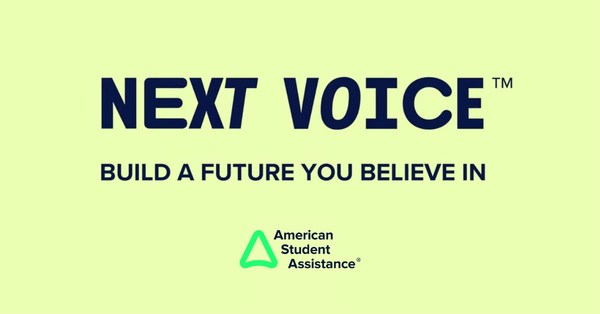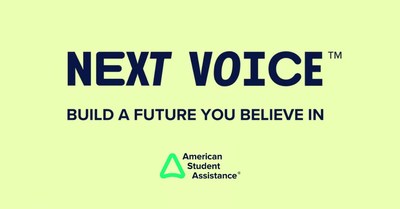Study Conducted by American Student Assistance Reveals Only 30 Percent of Teens Feel They Have Enough Information to Make Change
BOSTON, Nov. 15, 2022 /PRNewswire/ -- American Student Assistance® (ASA), a national nonprofit changing the way kids learn about careers and navigate a path to postsecondary education and career success, conducted a quantitative study of more than 2,000 13-18-year-olds from across the nation to gain insights into Gen Z's attitudes and behaviors around activism. This nationally representative survey reveals Gen Z's level of confidence in their ability to effectively advocate, sources of information about and inspiration in social causes, impact of their interest in social causes on career choices, and where teens stand on various social causes, including which causes they most advocate for.
Key findings of the survey include the following:
- Around three in 10 teens say they don't have enough information to make change or have tools to make change. Three in 10 are confident that the causes they support will see changes/improvement in the next five years, and between 30-42% of teens feel petitioning elected officials will lead to change on each of these issues.
- Over half of the teens said that their friends (54%) and social media (52%) provide them with information and inspiration about the causes they care most about. Half (50%) of the teens said that their parents and older family members provide them with information and inspiration. Half of the teens also said their friends influenced them to take an interest in the causes they care most about, while 46% said their parents and older family members and 44% said social media influenced them. Teens also rated the degree to which their parents or older family members showed them how to advocate for causes on a scale of one to 10 at a 5.6, with 28% giving it an eight or above rating. In addition, most teens who use social media channels to get information on causes/charities use YouTube (69%), followed by TikTok (66%) and Instagram (55%).
- A larger share of middle schoolers (45%) than early high schoolers (38%) or late high schoolers (40%) say that celebrities, athletes, or other influencers provide them with information and inspiration about the causes they care about most.
- The survey also revealed that a quarter of teens say the causes they are interested in have highly influenced their career choices.
Where Gen Z stands on specific social causes and issues:
- Causes Teens Feel Their Generation is Most Able to Advocate For: On a scale of 1-10, teens feel they are most effective at advocating for mental health and racial justice issues (6.4 each), gender equality (6.2), and LGBTQIA+ rights (6.1). They feel they are least effective at advocating for climate change (5.0), while teens feel their peers are only somewhat likely (5.0 on a scale from 1-10) to take action and advocate for the environment.
- The Future of Global Warming: Only about half (49%) say they know the steps they and their families can take to reduce their carbon footprint, but only 24% are taking action steps to address the crisis.
- Bridging the Reproductive Rights Divide: Nearly half of teens (49%) are [still] unsure whether they'll get involved in reproductive rights in the next year, regardless of whether they are pro-choice or pro-life. Only 29% of teens plan to get involved while 22% do not plan on getting involved in this highly charged issue.
- Views on Gender Equality: A full 60% of teen respondents feel that women in the workplace have either somewhat fewer (36%) or far fewer (24%) rights than their male counterparts.
- Mental Health Concerns: Gen Z's feel their peers are afflicted by anxiety (more than four in 10 feel this way), followed by depression (28%), and drug/alcohol abuse (13%). They feel that more than other parties, healthcare providers should be primarily responsible, financially, for addressing mental health issues. Nearly half (46%) feel their peers do not have adequate access to mental health support services.
- How/Who to Grow Advocacy: They say more high-profile LGBTQIA+ leaders and female leaders speaking out will make a difference in addressing LGBTQIA+ discrimination and gender equality, while more and different education in school will impact change around mental health (58%), racial equality (55%), climate change (52%), gender equality (50%), and LGBTQIA+ rights (51%). Between 30-42% of teens feel petitioning elected officials will lead to change on these issues.
- Schools Taking Action: Nearly two thirds (63%) of high school juniors and seniors say more or different education in school can inspire Gen Z students to support and address mental health problems – while just over half (53%) say social media can help awareness and advocacy.
"It's clear that many of today's young people feel that their voices aren't being heard. At ASA, we are passionate about working with kids to ensure they have the tools they need to shape their own futures, whether it's through the exploration of education and career paths aligned with their passions or helping them become confident and effective advocates for the issues that matter most to them. With Next Voice, we are meeting them where they are – online – to ensure that as many kids as possible have access to the resources they need to help them advocate for themselves and what they care about in the world," said Clay Colarusso, CMO and SVP of Digital Strategy at ASA.
In an effort to give teens a greater voice in the issues they care about, ASA has launched Next Voice™, a free digital advocacy platform that gives teens the lifelong and career-ready skills they need to effectively advocate for social issues that matter most to them. The digital experience enables young people to explore, engage with current social causes, take action, and gain valuable, real-world skills while providing opportunities to test and apply in real time what they've learned along the way.
ASA co-created the platform with a nationwide panel of middle and high school teen advisors on design and discrete features and functionality, with qualitative validation based on feedback from more than 2,700 additional young people.
Providing the resources and the know-how kids need to become effective advocates, Next Voice™ was designed so that teens ages 13-18 can independently explore the digital experience, which encompasses topics like racial justice, mental health, climate change, and LGBTQIA+ issues. Whether on their phone, laptop, or other device, kids can learn how to write and speak powerfully about causes they care about, find allies and organizations with decision-making power, and start their own advocacy community outside of the platform.
With Next Voice™, teens can:
- Find, source, and evaluate the credibility of information on the topics they care about most through five learning modules, each containing more specific, bite-sized lessons composed of interactive multiple choice quizzes, slider assessments, Mad Libs exercises, and other activities to inspire learning.
- View 15 informative videos, in total, that also live within these 28 bite-sized lessons that help young people to become effective advocates while building valuable career-ready and lifelong skills. These skills—the ability to research, hone an argument, communicate point of view, and work with others toward a common cause—are all skills that every student needs to be career ready.
- Learn how to become successful advocates, based on content from ASA subject matter experts in advocacy and education, and understand what peers are saying about issues they care about, including climate change, life after high school, LGBTQIA+, racial justice, and gender equality.
- Develop the research, writing, speaking, organizing, and other skills they'll need to make an impact as well as strategies to put their voice into action, including tailoring materials to write letters to legislators or editors, speak in public, and encourage their peers and community members to get involved. Teens will also be able to take action with three downloadable best-in-class written templates that youth can customize to address legislators. The platform also features nine unique tip sheets that help teens effectively speak in public across a variety of audiences and forums to encourage their peers, community members, and decisionmakers to get involved.
- Gain career readiness skills, including written communications, building confidence, organizing behind a cause, and researching and confirming the source and validity of content and data.
Methodology statement: This press release summarizes the results of a quantitative, nationally representative online survey of 13-18-year-old U.S. teens in the 7th-12th grades. The study was fielded in September 2022 with a total sample size of 2,087. Proportionally representative of race and region, the data was weighted for even distribution across grade level and gender.
American Student Assistance® (ASA) is a national nonprofit committed to helping students know themselves, know their options, and make informed decisions to achieve their education and career goals. ASA believes all students should have equitable access to career readiness learning, starting in middle school, so they can develop a plan for their future. ASA fulfills its mission by providing digital-first programming, resources, and experiences, including Futurescape® and Next Voice™, directly to millions of students, in addition to support for educators and intermediaries. To learn more about ASA, visit https://www.asa.org/about-asa/.
SOURCE American Student Assistance (ASA)


